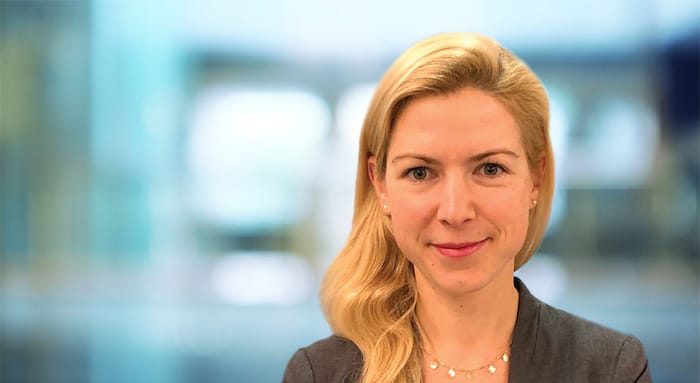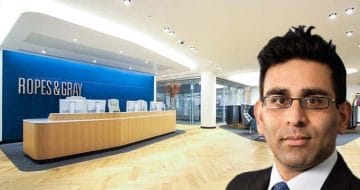Ropes & Gray senior counsel Lisa Kaltenbrunner discusses upcoming regulatory changes and how she came to specialise in this exciting area of law

“I immediately loved the module at university,” confesses Lisa Kaltenbrunner who never looked back since picking up her first books on competition law as a student in Vienna. Following a year abroad at the University of Nottingham, Kaltenbrunner decided that she wanted to practise in the UK, completing her training contract at a law firm in London.
As a trainee, Kaltenbrunner reminisces that her seat in competition law was “incredibly intellectually stimulating”. The discipline involves as much of an interest in market dynamics and economics as legal acumen. Accordingly, Kaltenbrunner recalls enjoying “really being able to understand and engage with the market and the clients to a much greater extent than I had found in other seats”. She also quips, “and it was less document and process-heavy than some of the transactional departments as well!”
Now, as senior counsel in Ropes & Gray’s London office, the benefits of being a competition lawyer at a US outfit with a strong global reputation are clear: “working with the big players is where competition law is most interesting. Ropes & Gray has so many high profile and interesting clients and is consistently very strong in all the most exciting areas from a competition point of view — it makes it a really exciting place to practise”.
Throughout her career, Kaltenbrunner has also benefitted from secondments to a global bank, a UK food company and the UK competition agency, the Competition and Markets Authority (CMA). “It’s really valuable walking in someone else’s shoes so-to-speak. These experiences allowed me to learn how clients work and approach legal problems internally.” She particularly highlights her time with the CMA, a secondment that is also available to Ropes & Gray lawyers. “I was able to work alongside economists at the CMA and get an insight into how a very busy agency works in practice.”
Amongst the things she learnt at the CMA was how politics can influence changing policy trends. “In the aftermath of Covid”, she points out, “we have seen the CMA focus especially on consumer protection”. Other major changes in competition law have been taking place just across the Channel in Europe. Kaltenbrunner highlights two that have particularly driven a lot of her more recent work in merger control: the reinterpretation of Article 22 of the European Union’s Merger Regulation and new EU legislative proposals, the Digital Markets Act (DMA) and the Digital Services Act (DSA).
The reinterpretation of Article 22 (often referred to as “the Dutch clause”) is a response to a perceived enforcement gap in EU and national merger control. It aims to prevent large corporations from targeting companies which do not yet have significant revenues thereby falling below the turnover threshold for competition investigation and avoiding merger control. Kaltenbrunner notes that this is a “big change” that could “disrupt deal timetables”. Kaltenbrunner also thought that “there are a lot of parallel investigations between the EU Commission and the CMA, so it will also be interesting to see what happens in the UK”. Furthermore, she says that the DMA and DSA have also meant that competition law is likely to become “very active for ‘gatekeepers’, who may now face extensive and continuous competition compliance demands”.
So, how can wannabe corporate lawyers get a head start in this field? “Keep your eyes and ears open for commercial news. Slowly start building your knowledge by reading and learning about these issues” is very useful for budding lawyers, says Kaltenbrunner. She went on to explain that the qualities she looks for in trainees include “intellectual curiosity, commercial awareness and soft skills like how you interact with clients and colleagues”.
As well as offering secondments at the likes of the CMA, Ropes & Gray also funds dual-qualification for juniors who, Kaltenbrunner explains, are known to get exposure to work in a variety of different jurisdictions. She also emphasises the close-knit nature of the firm — Ropes & Gray has a relatively small trainee intake around 12 per year. “We know all the trainees personally and we want you to really enjoy what you are doing,” she says. Ultimately, this is her pitch to wannabe competition lawyers: “if you really like to think and you like a challenge, then competition law might be the place for you”.
Lisa Kaltenbrunner will be speaking at ‘The Big Commercial Awareness Themes of 2021-22 — with Ropes & Gray, Gowling WLG, Irwin Mitchell and ULaw’, a virtual student event taking place on Monday 1 November. You can apply to attend the event, which is free, now.
About Legal Cheek Careers posts.

